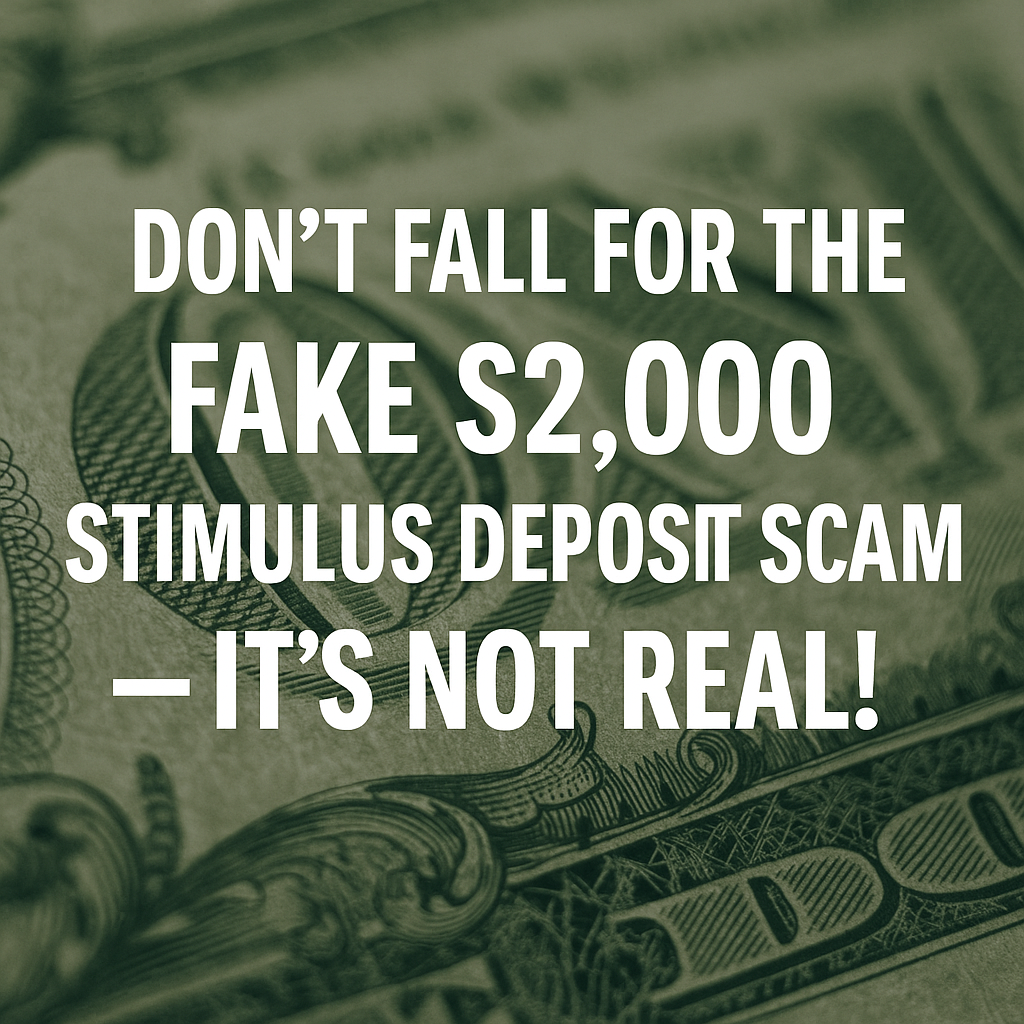Palm Coast Local
Locals Helping Locals

Don’t Fall for the Fake $2,000 Stimulus Deposit Scam — It’s Not Real!
- Details
- Written by: Palm Coast Local
- Parent Category: Business Blog
- Category: Consumer Alert

Don’t Fall for the Fake $2,000 Stimulus Deposit Scam — It’s Not Real!
Lately, social media has been buzzing with posts claiming that a new $2,000 stimulus deposit is on its way — urging people to call a phone number and “confirm” by entering the last four digits of their Social Security number.
If you’ve seen this message floating around, stop right there — it’s not real. This is the latest in a growing wave of scams designed to steal personal information and prey on financial uncertainty.
The Claim
The circulating post says something like:
“You may qualify for a $2,000 stimulus payment! Call this number today and confirm your details to receive, verify, or claim your direct deposit.”
It sounds official. It uses urgent words like “limited time” or “before it expires.” And it often includes what looks like a government-style phone number or logo to make it believable.
But here’s the truth: no new federal stimulus payments have been approved or issued.
What the IRS Says
The IRS and U.S. Department of Treasury have both confirmed that there are no active stimulus programs right now.
They also remind the public that the IRS never contacts taxpayers by phone, email, text, or social media to request personal or financial information — not even for legitimate payments.
So if someone asks you to verify your identity, give your SSN, or confirm your bank info in order to release funds — it’s a scam. Plain and simple.
Why This Matters
These scams aren’t harmless rumors. They’re phishing traps that can lead to:
-
Identity theft
-
Bank account fraud
-
Unauthorized credit card charges
-
Stolen tax refunds or government benefits
Once a scammer has even partial details (like your SSN or date of birth), they can piece together enough to impersonate you — or sell your info to others.
How to Stay Safe
-
Don’t call or click. If a message includes a phone number or link, don’t use it.
-
Check official sources. Visit IRS.gov
Report Tax and Stimulas Scams or Fraud Here.
On Social Media, either don't reply to the post (the scammer then gets your profile info) or if you want to help simply comment FAKE, SCAM ALERT.
Add comment